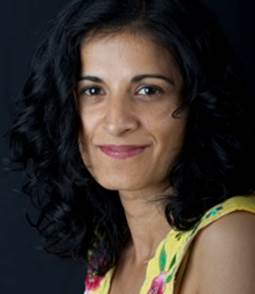Decolonizing the City with the White Elephant in the Room
Jasmindra Jawanda, Urban Planning Consultant
Abstract
“Where do you begin telling someone their world is not the only one?” – Lee Maracle
This talk will discuss the importance of decolonizing cities through urban planning processes that incorporate land justice and rights, and promote diversity, anti-racism, inclusion, and equity. Only by addressing the white elephant in the room can doors open to Indigenous, Black, and other racialized peoples to enter the house of planning and start reimaging and redesigning cities and landscapes that reflect the diversity of Indigenous communities and communities of colour. By decentring the white elephant in the room, others who have been peripheralized can better contribute to planning just and anti-racist cities with Indigenous, Black, and other racialized peoples leading the way. It is about naming it out loud, and also naming it within, by asking the question: Can we decolonize cities without decolonizing minds?
Jasmindra Jawanda is an Urban Planner who is committed to “creating space for people and place” that leads to diverse, inclusive, socially just, sustainable, vibrant, and resilient communities. Born on the unceded lands of the W̱SÁNEĆ peoples, Jasmindra is a Canadian proud of her Indian heritage, and as a racialized woman she is professionally and personally committed to centring diverse voices to address political, social, cultural, and environmental issues. With over 20 years of professional experience, Jasmindra has had a varied planning career working in the areas of land use planning, community planning, social planning, cultural/anti-racist planning, environmental planning, gender planning, youth development, arts and culture, corporate social responsibility, and international development. She has worked with diverse and marginalized populations including racialized and Indigenous peoples, immigrants and refugees, youth, girls and women, seniors, and peoples with disabilities. Jasmindra has also worked in provincial, municipal, community, private, academic, and non-profit/NGO sectors, locally and internationally, providing her with a unique and strong understanding of a myriad of planning issues from the local to the global. She has a master’s degree in Community and Regional Planning and a bachelor’s degree in Education from the University of British Columbia as well as a bachelor’s degree in Economics and Japanese from the University of Victoria. Jasmindra’s Master’s thesis was conducted in the Amazon region of Ecuador in the areas of community development, sustainable development, environmental planning, cultural preservation, and Indigenous capacity building. She is passionate about nature, books, critical thinking, social justice, community-building, music and dance, poetry/spoken word, meditating/spirituality, travelling, and having as many diverse life experiences as possible.
